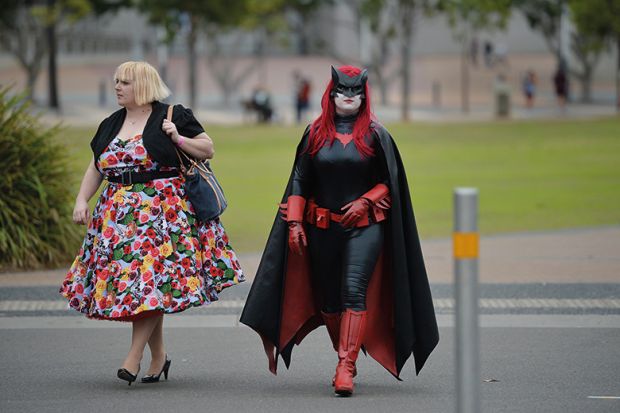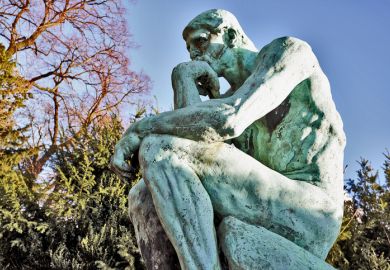The new wave of scholars exploring the constantly shifting literature of today have formed a group energised by the "explosion" of interest in the area.
Sarah Dillon, lecturer in literature and film at the University of Cambridge, says that when she started her career in 2006 “there were few posts in contemporary literature, no book series, very few journals. [When I was] an undergraduate at Cambridge in the 1990s, the contemporary paper stopped with Samuel Beckett, around the mid-20th century.
“Since 2000, we’ve seen an explosion of conferences, journals and book series dedicated to the contemporary,” she said. That includes Glyphi Contemporary Writers, for which Dr Dillon is the general editor.
The new British Association for Contemporary Literary Studies is the culmination of this explosion of research and scholarship, which is also evident “in teaching, particularly graduate teaching, where the highest demand is for programmes which at least come up to the contemporary moment”, Dr Dillon said.
Formally launched as a membership organisation this month, the BACLS is chaired by Robert Eaglestone, professor of contemporary literature and thought at Royal Holloway, University of London.
“There is a huge range of contemporary literature, more published than any one person could read in a lifetime,” he said, “so it is difficult to draw out the crucial approaches and ideas. It needs to be studied with the same depth of analysis you might bring to Milton or Shakespeare. We want to be a nodal network to help encourage conversations about contemporary literature.”
Although some scholars will be “addressing difficult, avant-garde or experimental fiction”, said Dr Dillon, who will take over as chair in 2018, others are likely to be looking at “more popular genres such as science fiction or fantasy” as well as “graphic novels, digital storytelling and video games”.
The BACLS will provide “esteem indicators – book prizes, committee roles, conference slots – for the huge numbers of graduate students and early career researchers”, she added.
Yet despite extensive discussion, the scholars who set it up decided they “didn’t want to specify an exact period which counts as ‘contemporary’”, continued Dr Dillon. "The idea is that it is literature produced in response to the contemporary moment, and that will be a shifting category as we continue through time. We will never be ‘the earlier half of the 21st-century society’.”
In addressing contemporary literature and therefore contemporary issues, literary scholars inevitably stray into the territory of psychologists, sociologists and political scientists.
Yet Dr Dillon believes their distinctive expertise can have a salutary effect well beyond literary studies. “We bring the ability to analyse language, style and rhetoric in order to explain and expose the way texts create meaning,” she said. “In what has been branded a post-truth society, that ability to forensically explain what words are doing and meaning is crucially important to give our students as they go out into the world.”
后记
Print headline: Scholars’ contemporary literature group to explore meaning in post-truth society




